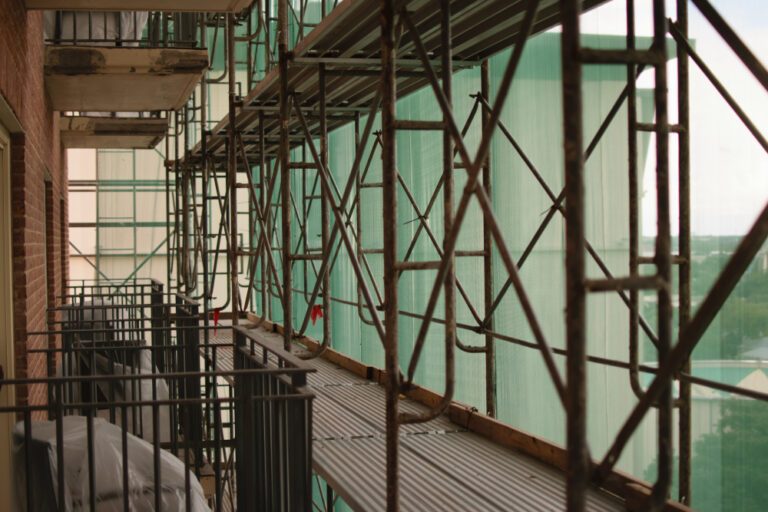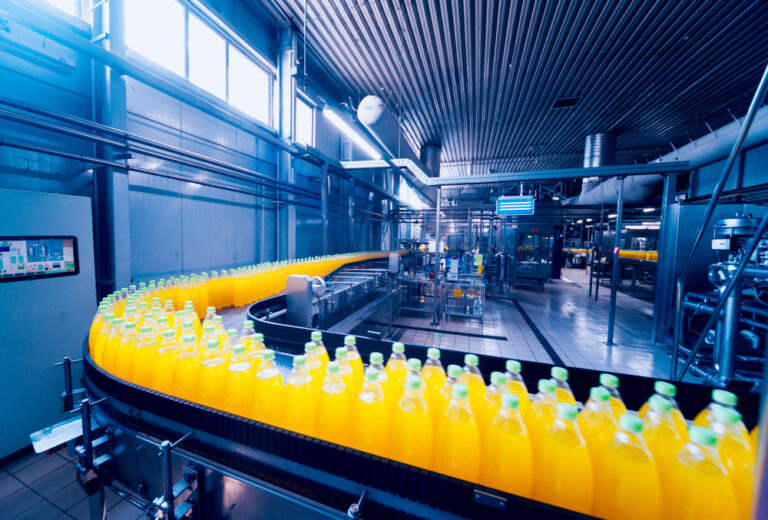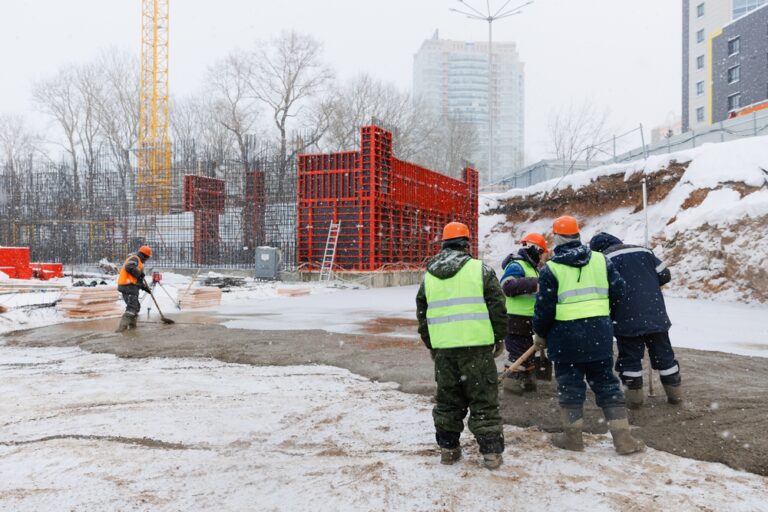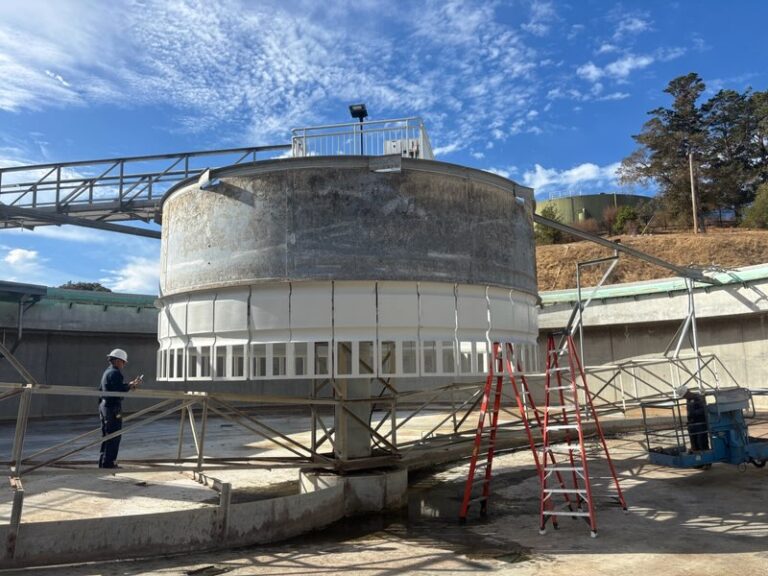Piping materials have undergone revolutionary change in the industrial sector. Historically, heavy-duty materials like iron and galvanized steel were the piping materials of choice. However, these have been largely replaced with more lightweight, non-corrosive materials, including aluminum, PVC, and copper. But even among these high-quality piping materials, which is best for your industrial needs?
Consider this your go-to guide for understanding the benefits and best applications for each of the three most popular industrial piping materials.
Aluminum Industrial Piping
Known for its low density and lightweight flexibility, aluminum is excellent for intricate, custom piping designs. The variety of aluminum alloys makes it versatile for many environments and uses, and its natural properties make it one of the most corrosion-resistant piping materials on the market. While highly durable, aluminum has a weaker strength-to-weight ratio than some other materials. But that also makes it flexible for custom metal fabrication.
Benefits
- Corrosion Resistance: Aluminum naturally resists corrosion by forming a passivating coating when exposed to corrosive environments.
- UV and Weatherproof: Aluminum is ideal for outdoor use, being weatherproof and resistant to solar radiation and heat.
- Heat Resistance: Aluminum has excellent heat conductivity.
- Lightweight: Aluminum is extremely lightweight, especially compared to traditional piping materials like steel.
- Customizable: Thanks to its flexibility and variety of alloys, aluminum piping can be functionally customized during fabrication and in appearance with surface treatments or painting.
- Durability: Aluminum is nearly as strong as steel, but only ⅓ the weight!
- Eco-friendly: Aluminum is 100% recyclable, making it one of the most environmentally friendly piping materials.
Drawbacks
- Cost: Aluminum may be more expensive because it tends to cause higher wear on welding tools during fabrication.
- Variable: The variability of aluminum alloys means quality is entirely dependent on the specific aluminum being used in any given situation.
- Less Sturdy: While still highly durable, aluminum is not as sturdy as other metal alloys.
Potential Applications
- Hydraulic systems
- Structural braces and frameworks
- Fuel lines
- Food and beverage industry
- Compressed air, vacuum, or inert gas applications
- Air conditioning ducts
PVC Industrial Piping
PVC (or “polyvinyl chloride”) is a popular plastic piping material used in sewage, water mains, and irrigation systems because the material is non-corrosive, cost-efficient, and sustainable. While popular for liquid transfer applications due to its low friction properties for faster flow, PVC is more vulnerable to temperature fluctuations than other piping materials.
Benefits
- 100% Non-Corrosive: While most piping materials are metal and therefore will have some corrosion potential, PVC is plastic and therefore does not corrode!
- Affordability: PVC is easy to install and inexpensive to manufacture.
- Low Friction: The smooth surface of PVC pipes causes very little friction for fast flow.
- Lightweight: PVC is very lightweight, even more lightweight than aluminum!
- Versatility: PVC is often used for plumbing because it is effective for indoor and underground use.
- Impact Resistance: PVC can handle high water pressure impact without bursting.
- Eco-Friendly: PVC production results in fewer carbon emissions than steel and iron pipes.
Drawbacks
- Heat Vulnerability: PVC can melt and warp in high heat or fires (it is temperature resistant up to 140°F).
- Cold Vulnerability: If uninsulated, PVC may freeze in cold temperatures. This could lead to pipes breaking or wet materials inside the pipes freezing and causing buildup.
Potential Applications
- Water service, sewage, and plumbing
- Ventilation
- Waste management
- Agriculture
- Hazardous chemical handling
- Infrastructure
Copper Industrial Piping
High-quality copper piping systems, like the Viega ProPress System we install and service at Mathews Mechanical, can handle a vast array of liquid, fuel, and gas applications. Copper is one of the best all-around industrial piping materials because of its durability and longevity, not to mention resistance to all manner of temperatures and pressures.
Benefits
- Corrosion Resistance: Copper can withstand decades of wear, resisting corrosion like no other metal.
- Heat Resistant: Copper is made for the heat, withstanding temperatures up to 400°F!
- Cold Resistant: Copper pipes are less likely to freeze than other piping, especially if properly insulated.
- Longevity: With proper industrial maintenance, copper systems can last anywhere from 50-70 years.
- Eco-Friendly: Copper is 100% recyclable and an excellent scrap metal.
- Durability: Copper is very tough under duress, capable of withstanding pressure up to 1000psi.
Drawbacks
- Cost: Copper is 2-3 times more expensive than other pipe materials, but what it lacks in affordability, it makes up for in its benefits!
- Acid Vulnerability: Copper is corrosion resistant in all ways except one: it is vulnerable to acids from decomposed plant matter in the water supply. Because of this, copper is best used for treated water to avoid possible corrosion.
- Metallic Taste to Water Supply: Corrosion can give water a metallic taste. While harmless, this can be a drawback for some residential uses.
Potential Applications
- Industrial machinery
- High-heat applications
- Condensers and heat exchangers
- Chemical processing
- Brake and fuel lines in the aerospace and automotive industries
- Refrigeration systems
Choosing the Right Industrial Pipe and Plumbing
All three of these top-of-the-line piping materials are generally affordable, corrosion-resistant, and versatile. In some industrial cases, it can be difficult to determine which piping material is best. Aluminum, PVC, and copper are all commonly used in food processing, water treatment, and manufacturing, but the material of choice depends on the specifics of use!
Mathews Mechanical works with all three of these materials for custom pipe and plumbing systems curated for your unique industrial needs. Contact us to learn more!





